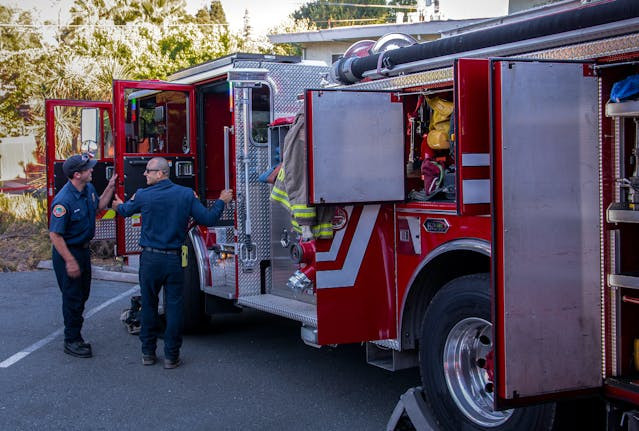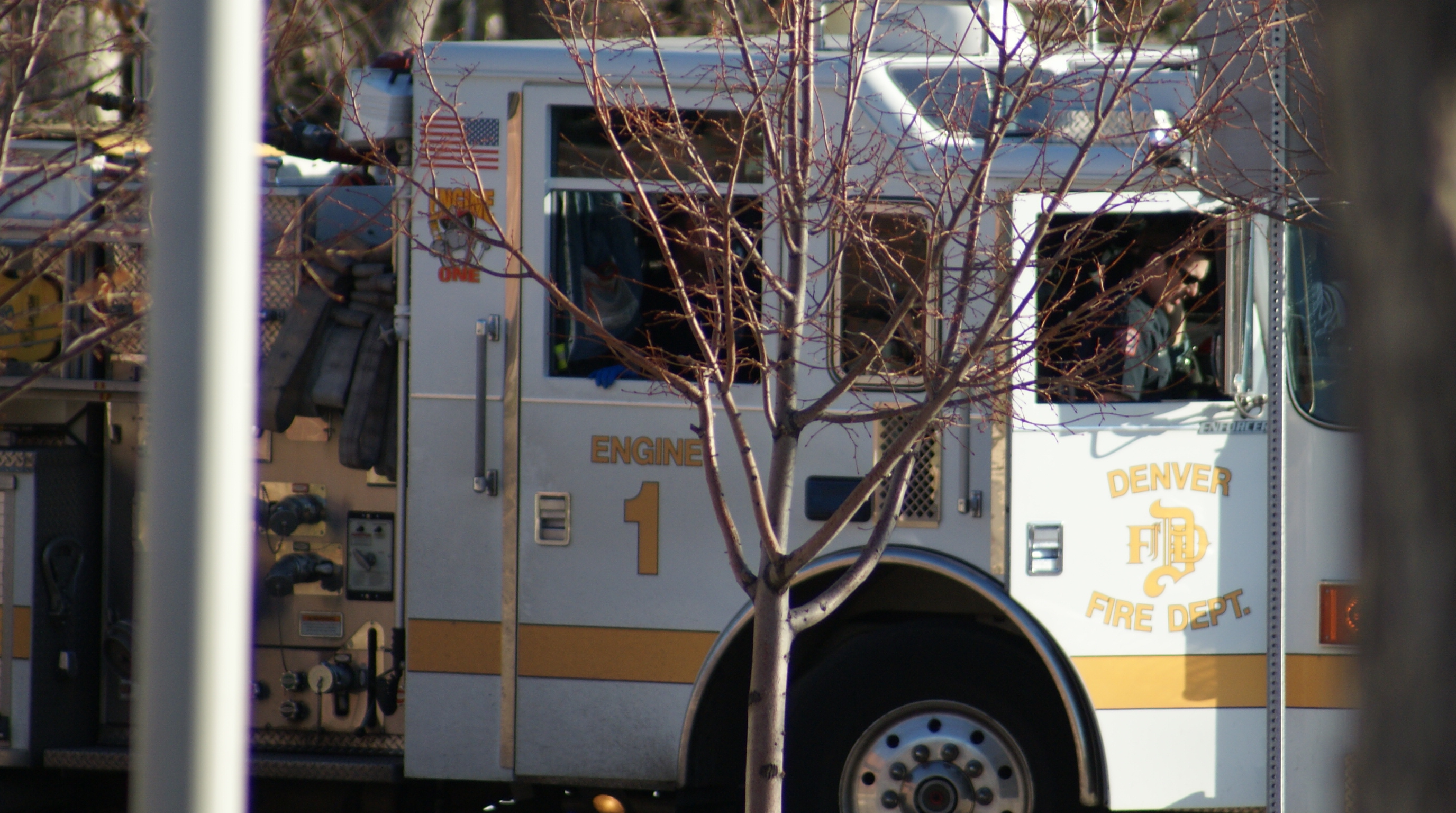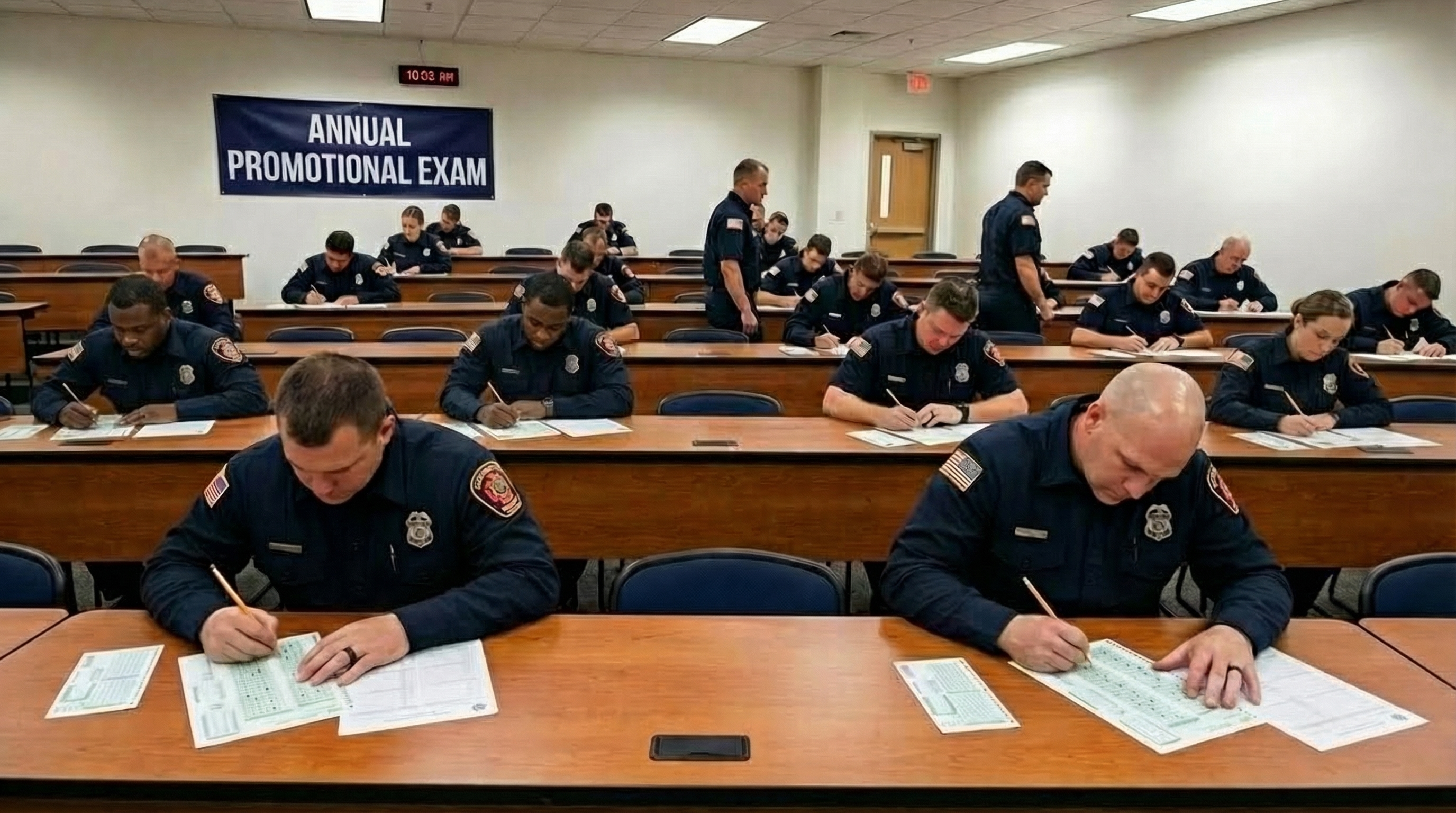The world is full of information and most of it is at your fingertips at any given second. When you begin to use the internet to work on your firefighter promotional exam prep, remember that not everything you find on the internet is true so you must verify it yourself.
How to Check Reputability of a Website
-
Domain Name
The first thing you want to do to check the reputability of a website and the information you are going to take from it, is to check the domain name and see how it ends. Websites that end in .edu, are from an educational source such as a college or university. Another source that should be reliable is .gov, which stands for government because these domains belong to government organizations. If you are on a website that ends in .com, that stands for commercial. Anyone can buy a website and use the domain .com, this doesn't mean it’s totally unreliable and should be avoided. You should, however, take a deeper outlook at the site using some of the other reputability checkers listed below. .Org is another website where you need to do your due diligence before diving too deep into. .Org stands for organization and these websites often belong to non-profits. A lot of nonprofits have valuable information to share but again, do your due diligence. For example, wikipedia is a .org website, but anyone under the sun can edit any wikipedia page they want so you want to avoid wikipedia in your studies at all cost. Another common web address is .net, it is primarily used by network and technology companies, but anyone can buy this domain as well. There are tons of other domains that do pop up such as .info or .biz that should be avoided. People can also fraudulently use any domain, even .gov or .edu, so be sure to check for other markers that the website is legit or not.
-
Cite Sources
Once you have checked that the domain is a reputable one, it is time to see if the website cites its sources. What citing means is they give credit to the person or persons they are getting their information from, and saying this information is not brand new information they came up with. There are a few ways to check for cited sources. The most traditional way to cite sources is to have a bibliography at the bottom of the article. So as soon as you open the webpage, scroll to the very bottom of the page and see if there are sources cited there. It should list the names of books or webpages and authors as well as other information. If you don’t see this, it is not time to run just yet. A lot of articles on the internet just give a direct link to the webpage where they got their information from. So skim the article and see if there are any hyperlinks within the article. If so, the website is looking good, meaning they aren’t stealing information from others without credit and they aren’t making stuff up, they are backing up what they are saying with research. Avoid any websites with no citations at all costs.
-
Credentials of the Author
Once you have noted the author has cited their work, it is time to figure out who the author even is. You want to check for an author's name and their credentials. If you are reading an article about the science behind certain biohazard materials you better hope it is written by someone who is in some way shape and form a scientist, not just a volunteer firefighter with no science degree. You want to make sure the person writing the article you are reading and using to study for your firefighter promotional exam, has the credentials to be trusted to write such an article.
-
Website Quality
Another good indication of whether a website can be trusted or not is the overall quality of it. Now don’t get me wrong, the website does not have to look like a masterpiece, but it should be decent. A lot of people have a lot of good information to share and simply cannot make a website well. It should however be relevant and not decades old especially in a field like fire fighting where things are constantly changing and being updated. It should not contain excessive spelling and grammatical errors, someone who is educated enough to share knowledge can do so without many errors. The links within the website should be up to date and actually work, if not it may be a sign the information from the website is outdated or just inaccurate. This is kind of a gut instinct thing, if the website looks suspicious it probably is, so save yourself the time and move on.
The Takeaway
Everyone thinks they are a genius these days and has made a website to share their knowledge with the world. Some of these websites provide a wide range of reputable information that you should trust and use to study for your firefighter promotional exam, while a lot you encounter will not. It is always best to do your due diligence before using a website to study for your promotional exam to make sure the information being presented is accurate.



